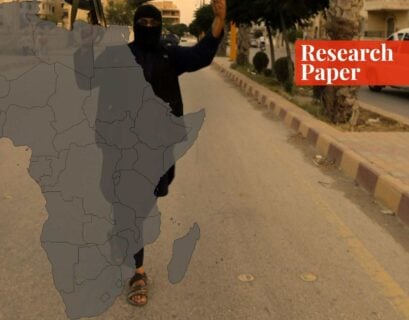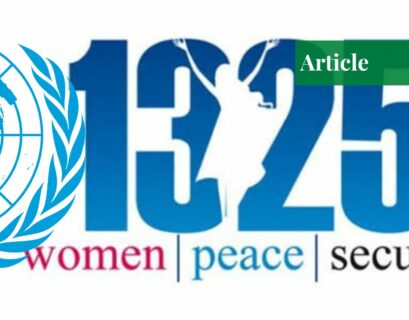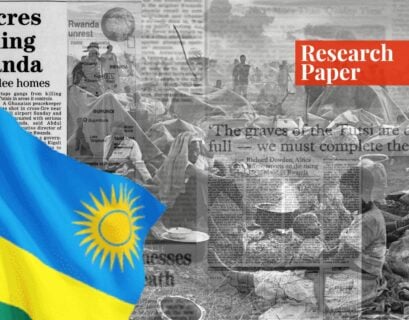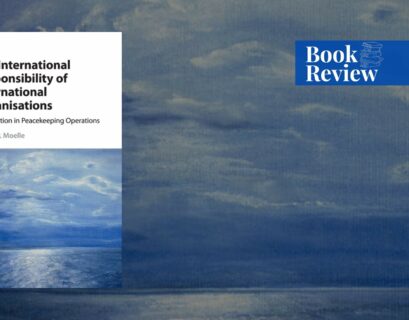Ayesha Firdous is pursuing her bachelor's in international relations from International Islamic University, Islamabad.
The Author
Thomas G. Weiss, the author of the book Global Governance: Why? What? Whither?, is a distinguished international diplomat and scholar of international relations and global governance. Born in 1946, he has special expertise in the politics of the United Nations, where he served in various high-ranking roles. He was named a 2016 Andrew Carnegie Fellow for a project exploring the concept of a world without the United Nations. Since 1998, he has been a presidential professor at the Graduate Center of the City University of New York. He is also the director emeritus of the Ralph Bunche Institute for International Studies.
Weiss has held leadership positions in Brown University’s Watson Institute for International Studies, the Academic Council on the UN System, the International Peace Academy, the United Nations Conference on Trade and Development, and the International Commission on Intervention and State Sovereignty. He has written extensively about international organizations, conflict management, humanitarian action, the responsibility to protect doctrine, North-South relations, and US foreign policy.
The Why, What, & Whither
How does the world work without a global government? The world is not governed by a single central authority, yet there’s no chaos or war. So, how is this order and stability maintained in this anarchic system? Thomas G. Weiss studies and tries to answer this question in his book on global governance. The “why” part is where the author starts by talking about why we need global governance. He explains how problems in the world are all connected, and he looks at this in a way that’s different from what most people think. He goes deep into the topic, giving us detailed insights into how international relations are changing.
The “what” part of the book talks about the different ways of global governance. He thoroughly looks at things like international organizations, agreements between countries, and how they work together. He talks about what works well and what doesn’t. The way he explains these complicated ideas makes it easy for anyone to understand.
The “whither” part looks into the future. He argues about where global governance might be headed. This part is like a guide for people who make decisions and gives analysis for readers to draw conclusions about what might happen in our connected world. Weiss is great at considering different points of view. He discusses experts’ arguments, gives examples, and uses real-life stories. This way of writing makes the book interesting and helps us see the whole picture of how global governance works.
He analyses how the world deals with global issues like climate change, nuclear weapons, humanitarian crises, terrorism, economic development, and pandemics without a central authority. He says that global governance is a complex and evolving system that depends on different actors, including governments, international organizations, non-governmental organizations, and businesses. These actors cooperate and compete to address global problems without there being a single decision-maker.
Global Governance Gaps Identified in the Book
His main goal is to identify the specific areas where global governance needs to develop to effectively address current global challenges and to propose the most effective strategies for facilitating this development in the future.
According to the author, there are five main global governance gaps. The knowledge gap means that there is not enough understanding among the major actors in global governance about the basis of major problems. Normative gaps translate to difficulties in reaching an agreement over universally acceptable norms, which can serve as the basis for the response to these major global problems. Policy gaps lead to challenges in the development of strategies to address global problems.
Institutional gaps refer to the weaknesses of global institutions in their response to global problems and their lack of resources. Lastly, he identifies compliance gaps, which mean that when countries don’t follow the rules and agreements they’ve made, there should be consequences (including the use of force), but this is not often seen in global politics.
The way the author explains these gaps makes them very easy to understand in terms of global governance and its challenges. Thomas G. Weiss argues that we must avoid pessimism in addressing the challenges, meaning that the current system is unable to change or that even if it changes, it will also be disorderly and chaotic. According to the author, a global government rather than global governance provides an essential factor.
Shortcomings of the Book
Despite Weiss’ analysis in the book, Global Governance: Why? What? Whither? fails to consider crucial factors that influence global governance.
- Lacking Analysis
The author overlooks opposing forces like nationalism and the rise of regional powers that act as obstacles to stronger global governance frameworks. A more thorough exploration of these challenges could strengthen the overall argument.
- Limited Exploration of Alternative Methods
Global Governance: Why? What? Whither? does not consider more methods of global governance that propose different paths for development. A more expansive exploration of diverse approaches could enhance the book’s depth and broaden its perspective.
- Western-centric Focus
Weiss mostly focuses on Western viewpoints and perspectives of global governance, potentially neglecting perspectives from other parts of the world. A more broad approach to global governance, considering diverse cultural and regional perspectives, could improve the book’s analysis.
- Rapid Growth of Global Governance
Global Governance: Why? What? Whither? might struggle to keep up with the rapidly changing nature of global governance. Given the dynamic nature of international relations, a potential weakness could be the book’s challenge in providing the very latest analysis.
In conclusion, while the book has notable strengths in its comprehensive analysis, accessible language, and identification of governance gaps, there are areas where it could benefit from a more complete analysis, consideration of alternative methods, and a more globally inclusive perspective. Additionally, addressing the timeliness concern could enhance the book’s relevance in the rapidly evolving international relations.
If you want to submit your articles and/or research papers, please check the Submissions page.
The views and opinions expressed in this article/paper are the author’s own and do not necessarily reflect the editorial position of Paradigm Shift.



















